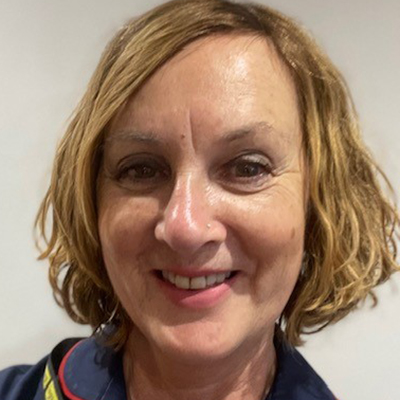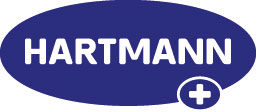Sarah Gardner

Sarah spent 40 years working within the NHS with much of this time in the community.
She worked for 18 years as a District Nurse, community practice teacher and clinical development lead, and for 13 years was clinical lead of a specialist Tissue Viability team. She has a particular interest in lower limb wounds and previously had the privilege of being involved in both the NWCSP lower limb workstream and the LegsMatter campaign.
After re-locating to beautiful Cumbria in 2020, Sarah now practises as an independent advisor/ educator through her own Tissue Viability consultancy business. Much of her work is with NHS and Primary Care organisations, facilitating positive change through education and quality improvement initiatives.
Sarah is currently Chair of the Society of Tissue Viability and also has a role as education facilitator, bringing together the content for both the virtual programme and annual conference.
Presentation at The Society of Tissue Viability 2025 Conference
Conference opening address
Key messages
The session is aimed at all conference delegates and invited speakers.
Abstract
This presentation will welcome delegates, speakers and exhibitors to the 2025 annual conference.
It will briefly share highlights of the Society’s achievements over the past 12 months and will relay key outcomes from our recent strategy planning event.
Presentation at The SoTV/EWMA 2024 Conference, London
The psychological impact of living with a wound
Learning objectives
After attending this session, persons will be able to:
- Appreciate the personal experience of living with a non-healing wound
- Identify factors that may contribute to less-than-optimal psychological support for people with wounds
- Make recommendations to improve psychological support of individuals with wounds
Abstract
This session will share the personal experiences of wound healing experienced by 2 individuals; one after sustaining a complex traumatic wound after being bitten by a dog and the other with painful leg ulceration. The thoughts, feelings and observations of the individuals and their carers will be explored with commentary from a psychiatrist. The session will facilitate a discussion about factors that should be considered to improve the psychological support of wounded patients and conclude by making recommendations to improve clinical practice.
Presentation at The SoTV/EWMA 2024 Conference, London
Making a difference: How your learning can lead to sustainable change
Learning objectives
After attending this session, persons will be able to:
- Have the opportunity to reflect on and discuss their learning from the days sessions
- Explore the challenges when trying to implement change within their area of practice
- Consider solutions to the challenges and explore their role in helping to achieve success
- Take away a personal pledge to making a sustainable change in wound prevention & management
Abstract
It is well known that following any educational event, applying that learning in to practice can be challenging and this can be for a number of reasons. Not being able to do this can result in poor job satisfaction, frustration and lack of motivation, but more importantly, not being able to implement new knowledge and skills will prevent the change needed for service improvement and better outcomes for patients.
This session, will allow participants to reflect on their learning from the day and to explore the sustainable change they think is needed within their areas of practice. The facilitators will help identify the barriers to implementing change, and suggest solutions or strategies for breaking these barriers down.
Every participant plays an important role in wound prevention and management and at the end of the session, everyone will be asked to commit to a small sustainable change to their practice in the form of a pledge.
Presentation at The Society of Tissue Viability 2023 Conference
Where’s the harm in that? A new focus from Legs Matter
Objectives
After attending this session, persons will:
- Be able to recognise why Legs Matter believes that sub optimal leg and foot care is patient harm and how this message can be communicated through this year’s Legs Matter Awareness Week
Abstract
The current reality in the UK is that people with leg and foot conditions are not being treated adequately or in time and, as a result, are being harmed. Harm includes delayed healing, unnecessary pain, infection, amputation, hospitalisation, loss of livelihood, social isolation, anxiety, and depression. This harm is unacceptable and avoidable.
This brief presentation will share with delegates the Legs Matter campaign strategy for communicating the harm message and the activities we have planned for this years awareness week.
Presentation at The Society of Tissue Viability 2022 Conference
Making Legs Matter: How the campaign is making a difference
Objectives
After attending this session, persons will:
- Have a good understanding of the campaigns aim and objectives
- Know about the key platforms we use to raise awareness and how these are performing
- Know more about the activities the campaign is planning as part of their strategy
- Have information on how they can personally get involved in the campaign
Abstract
Under the governance of the TVS, the Legs Matter campaign was launched in 2018 and is led by a coalition of not-for-profit health care societies/ organisations and patient partners. It is supported financially by corporate partners from the wound care industry.
It continues to be a major influencer for improving lower limb care throughout the UK and seeks to raise public and clinician awareness of common conditions which can affect the lower leg and/or the foot by highlighting the importance of early health care practitioner involvement and evidence-based interventions. Legs Matter uses a range of platforms to campaign from, including its website, social media activity, PR campaigns and an annual awareness week.
Legs Matter is certainly making an impact both nationally and internationally. This session will update delegates on the progress being made with the campaign, will share data that demonstrates this progress, will discuss the activity we have planned for the year ahead and will suggest ways of how individuals can get involved to support the ambition of the Legs Matter coalition.














